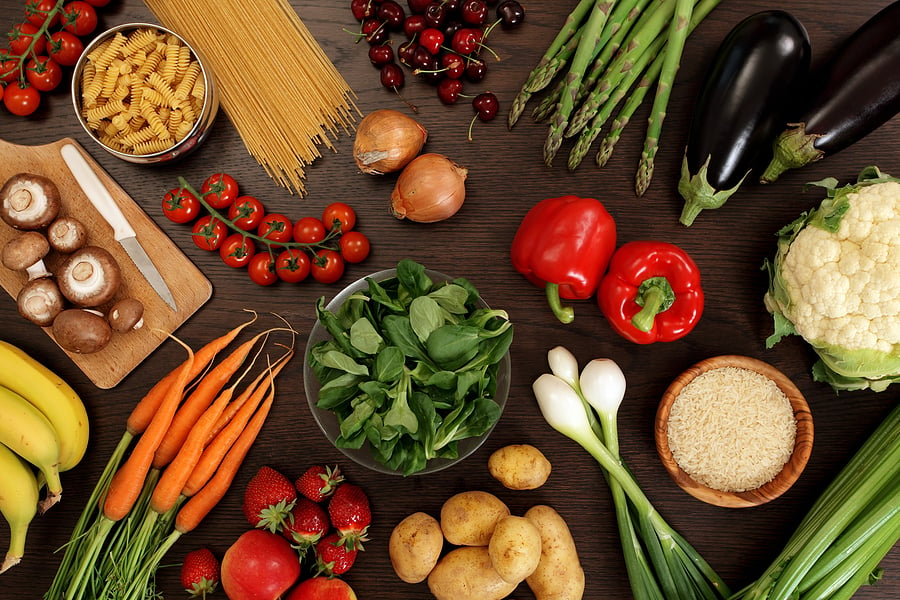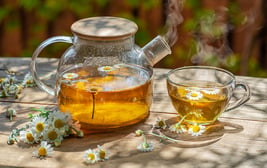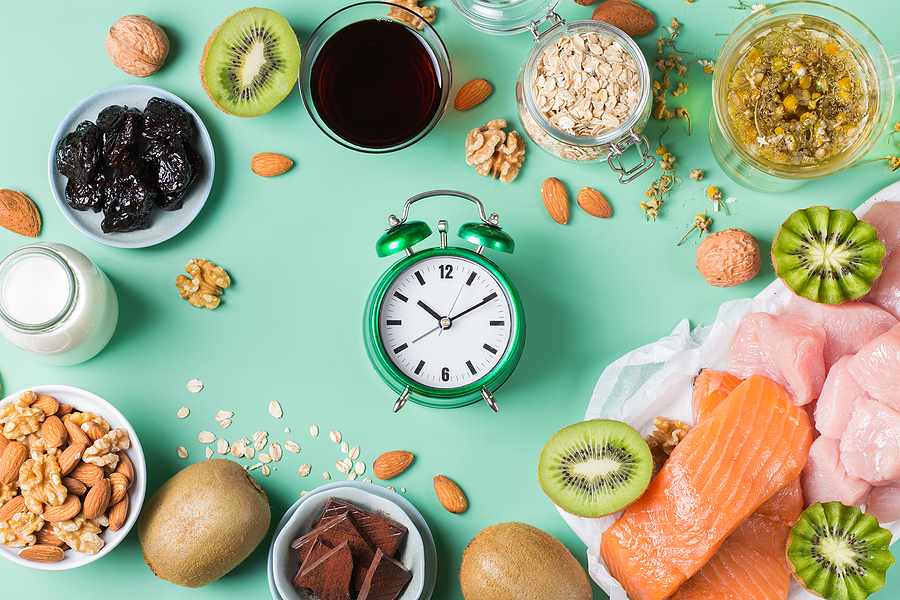Sleep is vital to good health. So is good nutrition, but a lot of people don't understand how the latter affects the former.
In fact, your diet can significantly influence the amount and quality of your sleep. Not getting enough sleep can also aggravate weight gain and other issues caused by poor nutrition.
What is Nutrition?
Nutrition is a fancy term for what we eat. It covers the food and other substances that allow us to function properly. Proper nutrition means a healthy balance of vitamins, minerals, and macronutrients (such as protein and carbohydrates).

Too many people mistake "dieting" for good nutrition. Changing food habits solely for weight loss in a non-sustainable manner is not good nutrition. Instead, good nutrition is ensuring you are getting all of your necessary vitamins and minerals, and making sure that you eat neither too much nor too little of the macronutrients you need.
What Foods Compromise Sleep
Some foods are simply not good for sleep. Two obvious issues are alcohol and caffeine.
Other foods associated with poor sleep quality are:
- High carbohydrate meals with high glycemic indexes can make you drowsy but are also associated with reduced deep sleep and increased awakenings.
- Energy drinks. Energy drinks should be avoided as much as possible, and only used if you need to stay awake.
- Sugar-sweetened beverages. This includes packaged smoothies (the ones you make yourself with controlled sugar levels are better).
- Chocolate. Chocolate does not contain a lot of caffeine, but it contains enough that you should avoid snacking on it late at night.
- Overly-processed junk food. High levels of sodium can make you wake up thirsty. High levels of saturated fat result in lighter sleep. Try to satisfy that junk food craving at lunchtime.
- Certain cheeses. It's a myth that cheese will give you nightmares, but strong or aged cheeses, such as cheddar, contain tyramine, which increases your heart rate and can delay sleep.
- Tomatoes. Tomatoes are highly acidic and can cause indigestion. If you are prone to heartburn, avoid tomatoes and tomato-based foods. Even if you aren't, consider avoiding them late at night.
- Spicy foods. Spicy foods can also cause acid reflux. Avoid highly spiced foods within three hours of bedtime.
Foods that Can Help You Sleep
The best way to help sleep quality in general is to balance your nutrition. However, if you are prone to sleep difficulties, there are a few foods which can actually help you doze off. The best foods to have late at night include:
- A glass of milk. Giving warm milk to children at bedtime has a basis in science! Milk contains tryptophan, which helps promote serotonin and melatonin production. It doesn't work for everyone, but it can help.
- Almonds. Almonds are really good for you and may help lower your risk of diabetes and heart disease. Almonds also contain melatonin and magnesium, both of which encourage sleep.
- Chamomile tea.
 This contains apigenin, which promotes sleepiness and reduces insomnia. Chamomile also helps you relax and improves your mood, so then you are less anxious and doze off faster.
This contains apigenin, which promotes sleepiness and reduces insomnia. Chamomile also helps you relax and improves your mood, so then you are less anxious and doze off faster. - Walnuts. Walnuts also contain melatonin, and have a fatty acid profile helpful for sleep.
It's also a good idea not to eat too late at night, because when you are still digesting a large meal, your body is less ready for sleep. Having good nutrition...and avoiding the sleep-destroying foods above...can help you sleep. So can the right mattress!





